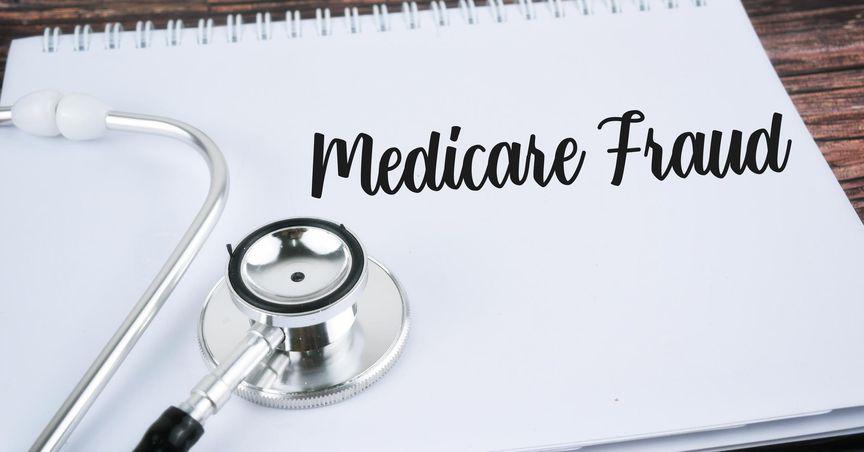A good health insurance policy doesn't come cheap, and getting one can be a challenging and complicated process. It entails purchasing an adequate plan, locating a professional in-network practitioner, and managing medical claims. As a result, policyholders are vulnerable to crooks who devise cunning ways to exploit shoppers who are unaware of the inner workings of the industry.
Without a doubt, health care fraud is very expensive, both for individuals and for the country as a whole, leading to the loss of millions every year.
Here, we’ll walk you through some tips to identify and prevent health insurance scams and other valuable information. Let’s jump straight in!
What are health insurance scams?
Scamming is a serious issue in the insurance sector and can happen when you sign up for your plan or at the time you make a claim. The most common health care frauds by medics involve taking advantage of patients by making false diagnoses in their medical records to make higher claims. Like other forms of fraud, healthcare fraud requires that false information be presented as fact.
Below are some of the most prevalent health insurance scams:
Stealing vital data
Medicare fraud can occur at any time. A fictitious insurance agent could try to sell you a cheap cover in the name of affordable health insurance. Also, a carrier may give you incorrect bills for services not received.
Someone may call you trying to verify your Medicare personal data. Subsequently, they may use the information gathered to make claims and get financial compensation.
You can also become a victim when joining the plan if you are a Medicare beneficiary. Usually, you may need to make several changes to the policy, and at this point, someone may call you pretending that they are verifying some information.
Medical identity theft is a form of fraud that criminals orchestrate using your personal information. A fraudster will cunningly find and use your social security number, or the codes associated with your health insurance policy to obtain benefits by making claims and payments in your name.
Defrauding mental health patients
Scams are especially prevalent in the mental health sector. Typically, community health fraud entails charging patients and insurance companies for extraneous or incomplete services.
Other types of mental health fraud include giving patients unnecessary medications or paying professionals to use specific services. Patients with mental illnesses may be in such a crisis that they are not aware of being exploited, making them particularly vulnerable.
Suspicious promotions
Although some discount cards are legitimate, the National Association of Insurance Commissioners (NAIC) states that they are not under insurance coverage and hence don’t cover medical expenses.
Stay away from promotions that try to entice prospects to join by advertising premium discounts on cards.
Double ordering of support health care machinery
Some carriers may inflate claims for health care equipment and support machinery for the seniors or disabled. In this case, they may bill the equipment more than once or make false requisitions for the machinery under the disguise that the health care provider ordered it.
What are the warning signs of health insurance scams?
Medicare and health care insurance frauds are widespread. Scammers are constantly looking for new ways to steal your money and personal information. Here are some of the common things health insurance scammers do:
- They claim to be from the government and demand cash or personal data.
- They claim that failing to pay a fee for a new Medicare card will result in losing your Medicare benefits.
- They request access to your private information in exchange for a price estimate.
- They want you to cover the cost of assistance with health insurance.
How can one avoid being a victim of a health insurance scam?
Here are some valuable tips to help you avoid health insurance fraud!
Keep personal information to yourself
Even if they claim to be from the insurance company, never give out your insurance details to anyone who calls or visits your home. Refrain from divulging personal information to anyone who asks, including your medical history or specific treatments you've had.
Shop with caution
Make sure the company is legitimate if you want to purchase coverage directly from an insurance provider. Before giving out any information online, check the company with your state's department of health insurance. It will enable you to confirm whether the company offering online health insurance is legitimate and licensed in your state.
Know important facts about Medicare
It's important to note that no individual currently on Medicare is required to enroll in a new plan or take any other action related to the Affordable Care Act. It’s a scam if someone contacts you and says they are with the government or Medicare and demand payment for a new "Obamacare" ID card.
Ask questions about your policy
Even though almost everyone is required by law to have health insurance or face a fine, most Americans already have coverage from their employers. If you have health insurance through your employer, you don't need to take any action in case of policy changes.
Importantly, record the name of any salesperson or other person who could help you, the company they work for, their phone number, street address, mailing address, email address, and website in writing. Ask questions if anything is unclear, and if the salesperson is a con artist, they will flee if you do. Any information that seems unclear should be verified.
Keep your card safe
As noted, scammers can steal your medical identity, putting you in danger. When you choose the health insurance plan of your choice, you’ll receive a health insurance ID card in your mail. Protect yourself by keeping this card safe.
Handle this card with the same care as your credit card or driver's license. When using your insurance ID card at a pharmacy, a doctor's office, or another public location, be cautious of "shoulder surfers," and don't lend your card to anyone else.
Keep an eagle eye
Con salespersons are aware that appearances can be both misleading and helpful in giving a false health insurance plan. Therefore, professional-looking, well-written literature from fraudulent operators is common, and the language is similar to that of regulated plans. Keep an eye on any unusual phrases on the documents provided.
Trust your instincts
Free medical services in exchange for your Medicare ID number or other offers that seem too good to be true are likely scams. Ask the caller for their first name and a call-back number if anything about the conversation makes you feel uneasy. Then do a background check to clear your instincts.
How can you get help on suspected health insurance fraud?
Gather all the information you can from a fake carrier if you come across one attempting to con you. You should alert the insurance commissioner in your state and give all the supporting evidence you've gathered.
Contact your local police department and file a complaint with the Federal Trade Commission if you believe a health insurance con has stolen your financial information.
More so, notify your health insurance provider immediately and file a police report if your health insurance ID card has been stolen or lost.
Conclusion
Health insurance fraud affects everyone, a pricey reality you can't afford to ignore. Knowing the warning signs of a health insurance fraudster will help you avoid becoming a victim of con artists working as salespeople or through unauthorized insurers.






